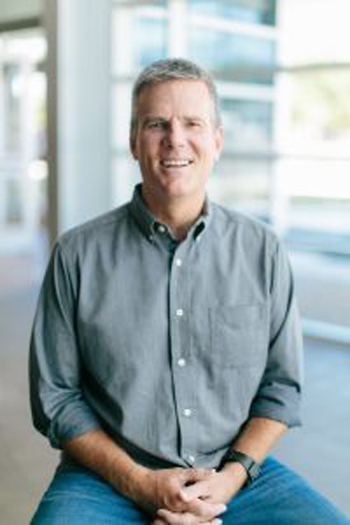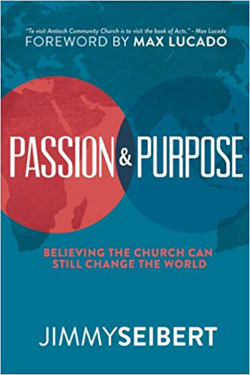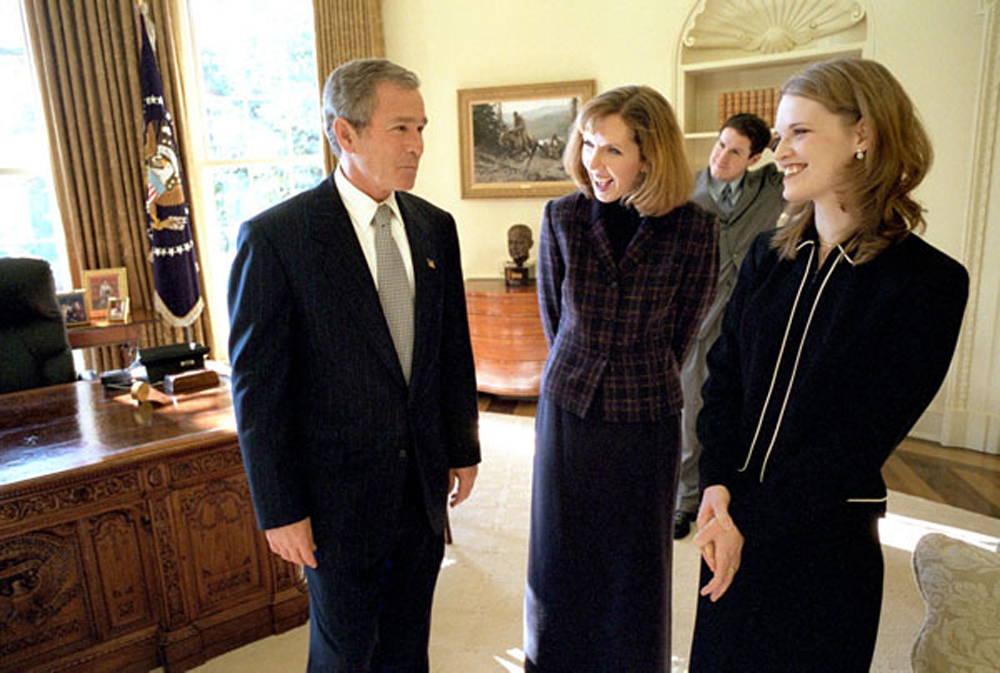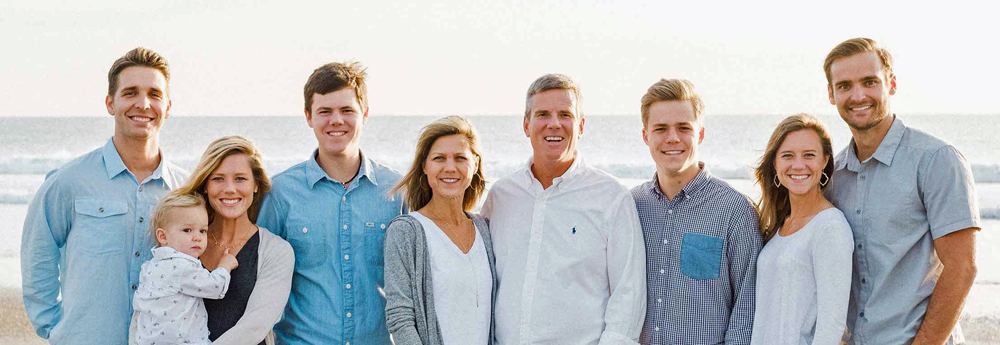By Mark Ellis –

From humble beginnings in Waco, Texas, he and his teams have launched 35 churches in the U.S. and at least 80 overseas. The potent formula they adopted is one that sadly escapes too many – modeling the New Testament church as closely as possible.
“I didn’t grow up in the church so I wasn’t mad at the church,” Pastor Jimmy Seibert told a breakout session at the Finishing the Task conference. “I had baggage but not church baggage. As a new believer I would read the Bible and say, ‘let’s do that.’”
In college at Baylor University he got involved with Campus Crusade (CRU) and attended a Christmas conference with Bill Bright in 1985. “I heard him say if three people disciple three people and they disciple three people, the whole world will be won by the year 2000.”
At the time, Seibert was skeptical – wondering if Bright believed his own message — because world evangelization seemed a long way off. As the years went by he recognized the founder of CRU “fully believed that” and it is part of what motivates Seibert today.
He took the values and principles he learned at CRU into a Baptist church in Waco. While on the staff as a college pastor, he was mentored by a man in the community named Robert that had led a Pentecostal movement. He was well known in local circles because of his incredible stories of faith and adventure.
“He would invite people over to his house and talk about the New Testament church and what it could be and tell stories of faith and miracles,” Seibert recounts. “He smuggled Bibles in and out of the Iron Curtain and told stories about God blinding guards.”
Even more remarkable, Robert had an assistant that had been raised from the dead in Mexico City. “He died and they had an open wake for three days in his home. Robert prayed for him and he was raised from the dead. This guy felt God told him he would serve Robert one day.”
“So listening to Robert’s stories and knowing this man was raised from the dead, my faith level was high. I had the evangelism and discipleship tools from Cru.”
 In 1987, Seibert and his wife, Laura, sold everything and moved to Waco’s inner city to live among the poor. They talked eight other graduating students from Baylor to join them, which became the nascent foundation of their mission training school.
In 1987, Seibert and his wife, Laura, sold everything and moved to Waco’s inner city to live among the poor. They talked eight other graduating students from Baylor to join them, which became the nascent foundation of their mission training school.
“We did nine months in the city and three months overseas. So all that began to happen over a five-year period. In our hearts and minds we knew we would eventually start planting churches.”
At the time, Seibert thought, What if the local church owned the process of training and sending people out all over the world to change the world? What if we grew relationship, evangelism and discipleship and reproduction inside the local church and planted that in other parts of the world?
Shortly after attending a mission conference in Los Angeles, three different people called to tell him they had a Scripture for him. Each one gave him the same passage: Isaiah 54:2-3.
Enlarge the place of your tent;
Stretch out the curtains of your dwellings, spare not;
Lengthen your cords and strengthen your pegs.
For you will spread abroad to the right and to the left.
And your descendants will possess nations
And will resettle the desolate cities.
Because he didn’t have a church background, he didn’t immediately recognize the significance of the Scripture, but soon discovered it was the same passage that catapulted William Carey into missions. Carey is considered one of the most illustrious missionaries of all time due to his groundbreaking, impactful work in India.
Overseas mission
In response, Seibert and his wife answered the call to begin part-time church planting in the former Soviet Union from their home base in Waco. The timing was propitious. “God’s spirit was being poured out in Eastern Europe and we were doing outreach in the streets with hundreds of people, churches were growing and we were seeing the miraculous work of God in Bulgaria and Romania.”
He met a friend affiliated with YWAM who told him they had been reaching thousands of young people with Christian rock concerts.
“We know we have to start planting churches,” his friend said. “Would you plant a church and be one of our partners?”
They set up an eight-city tour through northern Siberia, Uzbekistan, China and Mongolia, landing in southern Siberia in 1991 in the middle of a blizzard. The YWAM rockers were leading a “No Sex” tour. “They were urban groupie guys, but they could gather a crowd. Even though it was a snowstorm, about 120 people gathered that night and a third gave their lives to the Lord.
“In classic YWAM fashion they said, ‘We’re leaving tomorrow. They are all yours.’”
Seibert and his wife met every night for three weeks with them, a humble start to their church planting movement. “The early days were all about learning. If you don’t have a project you don’t learn. By planting among the unreached and unengaged it was helping us learn how to minister locally.”
Back in Waco as a college pastor, Seibert was developing his training school teaching discipleship, evangelism, fasting, prayer, and community. A book by Ralph Neighbour on cell groups was influential at the time, Where do we go from here?
Vision runs through Mongolia
A year later, they planted a church in Irkutsk. They taught the new believers to wait on God and see what He wants to teach them.
One girl laughed and said, “I keep seeing a picture of crosses going from Ulaanbaatar through Mongolia, as far as the eye can see to the east and west.”
They recognized her vision as a call to multiply churches. A couple months later in Waco a leader with YWAM visited and said he had exactly the same vision.
“We planted churches in Mongolia, Uzbekistan, Afghanistan, and Pakistan,” Seibert recounts.
Their inspiration was Acts 1:8. “We want to be in the ‘st’ of the uttermost and work our way back to Jerusalem,” he says. “We always had something going locally that gave us something to feed and to plant internationally; they were interactive.”
After completing his season as a college pastor, the local Baptist church blessed the Seiberts and sent them out to plant Antioch Community Church in Waco.
Planting in the inner city
“We made the decision to move into the inner city. The inner city of Waco was one of the poorer areas of America at the time,” he notes. “We thought, if we don’t minister to the poor in front of us, we won’t minister well cross-culturally. We have to work things out locally so we have something to transport internationally.”
He and his team set out to transform a 25-square block area that was a high crime area.
“Remember the lifestyle is always determined by the mission. It was not a sacrifice to move into the inner city because we had a clear call. You can’t reproduce something that you’re not. You can’t reproduce something you don’t have. You have to own your own faith in a real and tangible way locally so there is something to genuinely transport internationally.”
Captives for Jesus
In 2001, two of their missionaries in Afghanistan, Heather Mercer and Dayna Curry, were arrested by the Taliban for sharing the JESUS film.
Osama bin Laden had put out an edict that anyone showing the JESUS Film would be sentenced to prison for 14 days and receive a death sentence if any Muslim converted. “We had seen many Muslims come to the Lord so it was a tense situation. Then 911 happened. Heather and Dana were like daughters to Laura and me.”
In response, the church launched a 24-7 prayer vigil that lasted 104 days. The two young women were held captive in Kabul until anti-Taliban forces freed them in November 2001.
After their release, Dana said, “God allowed two of his daughters to be thrown in prison so the whole world would pray, so the orphan and widow would not be oppressed, and those who never heard would hear in Afghanistan.”
Seibert was astonished by what God did next. “Two months after they got out the Northern Alliance established control in Afghanistan and they put the JESUS film on national TV,” he recalls. “There were a thousand responses per month after that for at least 12 months and conservative estimates would say there are 1000 house churches that came from that.
“Before that there were 30 million people in Afghanistan with no gathered believers. So these tragedies, these crises bring intercession, which allows breakthrough to happen. So now we have viable, healthy, (and persecuted) churches in Afghanistan.”

On a plane coming back from Afghanistan, Seibert sought the Lord about a message for the church in Waco.
He felt God impress on his heart: Tell the church to return to their first love. I didn’t call you to be the missions church. I called you to be my church.
“The church is the gathered people of God expressing the glory of God in every place they go, inside and outside the church,” Seibert reflected. “That is connected to the head and His name is Jesus. Jesus must be preeminent; he must be the passion of the church, whether it is a house church or standing church.”
By 2019, Seibert has seen many changes that have made a difference in Waco. “It is not just us; there are other great churches we partner with. We are part of the greater tapestry of God, based on churches and people seeking God, seeking the welfare of the city, and saying, your kingdom come, your will be done here.”
“Where the church is not present the kingdom is not present, so we need more and more church planting. I believe in all my heart the sleeping giant is the church. For years I turned down speaking engagements because I said we have to build a model and not just talk about a model. We have to do something we can give away. It has to be vital; it has to be real. It has to be deep and wide enough so we can give it away.”
Making disciples
On any given week, the Antioch Movement is investing in about 100,000 people worldwide with disciple making. “We have 500 full-time workers reaching the 100,000. If we are going to reach a million people with disciple-making, then it is imperative that the 99.5% are equipped and empowered and believing that their mission on a day to day basis matters.”
“Central to the health of any movement is that you have to have disciples who make disciples. I say the only way I will invest in you is if you invest in someone else. I keep reproduction going in all my discipleship relationships.”
Seibert gauges the effectiveness of the movement by asking key questions: How many are being discipled? What does our house church witness look like? What do our gatherings look like? How healthy are they? What is the impact of people going off to work every day? How well are they doing?
“We tell people if you are going to be a member of the church you need to be part of a house church. Our membership course goes through all our values and ideals. We talk about equipping a believer and engaging an unbeliever. To be fully engaged at Antioch, you have to be a full time Christian and it works because everybody says the kingdom matters and you need to be part of a house church.
“The house group is an Acts 2:42-47 community: fellowship, communion, prayer, teaching in the word, multiplication to the lost, all that is happening. It is built to multiply, not to be a landing spot. That’s the key issue.
One of the primary values they stress is maintaining a devotional life. “We train and model and do everything we can do to get people with Jesus on a daily basis. It is not legalism; it is a joy. Getting into the Word and praying every day is deep, meaningful and rich. That’s what all our staff do. If I can get you with Jesus every day you’re going to be okay. If I can’t there’s nothing I can do to help you,” he says.
“In the end, I can’t sustain you apart from your own relationship with Jesus. Our number one value is the devotional life, being with Jesus.”

Another major value is evangelism. “We say we want everybody investing in one to three people who don’t know Jesus. Who are you praying for? Who are you investing in? What are the tools you are using to reach them? There is an expectation that we are all sharing the gospel.
At Antioch, they promote the value of financial modesty. “Live simply, work diligently, and give generously. Live within your means, no debt. We have poor and wealthy in our congregation. Let your lifestyle be determined by your mission. If you are reaching the inner city, live in the inner city. Don’t not live with the people you are trying to reach.”
Valuing holiness
They also esteem personal holiness. “It’s not a list of do’s and don’ts,” Seibert says. “Whatever you can watch with Jesus is fair game. Whatever Jesus likes, you have the liberty to watch. How much adultery can you watch and abide in Jesus? What can you smoke or drink with Jesus? We are not prohibitionists. Half our staff drinks and half don’t. Just don’t do anything that would cause someone else to stumble. It is not personal liberty for our sake, but for their sake.”
Once Seibert was staying with a missionary family attempting to reach Muslims and they were watching an “edgy” TV show with a lot of sexuality. “They had difficulties in their family and they weren’t reaching Muslims that well. They asked me to come in and watch this show.”
“I just can’t fill my head with that and seek the Lord in the morning,” Seibert said, “and go out and reach the Muslims. It just doesn’t work.”
While the father of the family was offended by his rebuff, Seibert stresses the importance of lifestyle choices. “Paul tells us not to live as a civilian, but to live as a soldier. There is a different way to live if you are serious about world evangelization and mission and church planting. You have to have a New Testament lifestyle to go with a New Testament expression.
“I know there are people who move in the power of God who have edgy lives. I know God uses all kinds of people, but if you are trying to build a people who are different, whose lifestyles impact the world, you have to live differently.”
In mobilizing the local church for mission, Seibert believes in starting small. “Jesus worked with the really hungry and the really broken. Look for a hungry pastor, a hungry leader, or a hungry young person. Start a small group that looks like an Acts 2 community, multiply it out and make the rest of the church jealous.”
Importance of modeling
“If more training was causing more evangelization, then we would have already won the world. Instead of training, it is discipling, walking side by side with people and modeling the values you want them to reproduce. They have to see it, taste it, and touch it.
Instead of teaching about devotional life, Seibert will take a group of guys and invite them to his house at 5 am. He asks them to watch him do his quiet time for an hour and a half. “I do the Word, worship, and prayer out loud. The next day we do it together again. Over a five-day period I wean them off my involvement. In my experience, only one guy has said he can’t do it. They saw it, felt it, tasted it, and touched it.”
Seibert believes wholeheartedly in the local church. “I am about constructing the church, not de-constructing the church. I am tired of the de-construction conversations. They are hurting all of us and millennials don’t know which way to turn because we are confusing them with our de-constructing verbiage.”
“The church is the bride of Christ, so do not slap the church or beat up on the church.
Get aligned with people who have the same values.”
“We are reaching out to the body of Christ in a broader way, saying come on church, we can do this. Let’s arise. This is the hour. Don’t miss it.”
To learn more about the Antioch Movement, go here




This is a powerful testimony. But how do we interest the self-absorbed churhc of America in the New Testament message of going beyond?
Comments are closed.